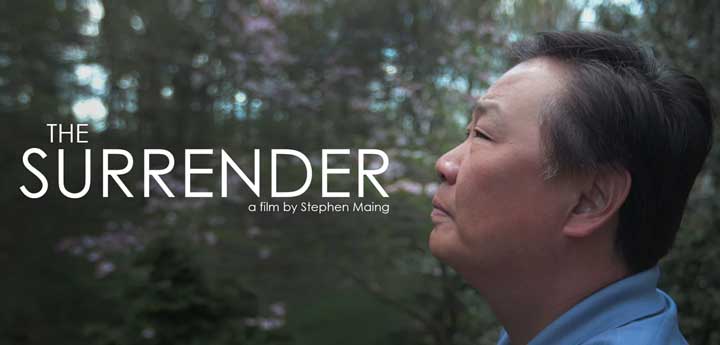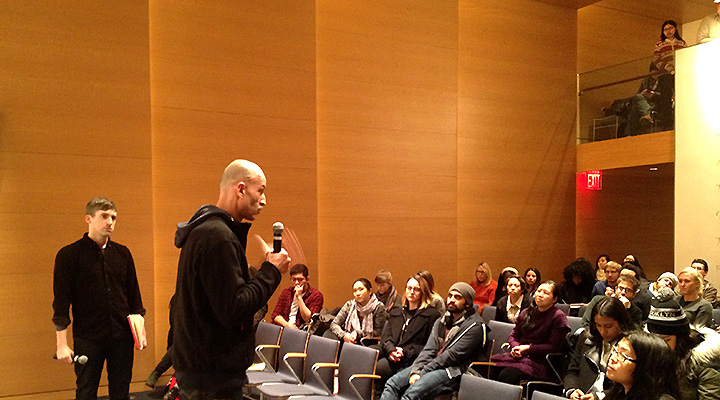Archive for February 21st, 2015
“The Surrender” by Stephen Maing
“The Surrender” by Stephen Maing
Occasionally, I see something that makes me reconsider the Libertarian platform as perhaps not being so ridiculous. The latest something to do so is the short documentary by Stephen Maing titled “The Surrender” which is currently available on First Look Media.
A simple conversation between Stephen Kim an intelligence analyst in the State Department and an ignorant Fox reporter James Rosen lead to the prosecution and 13 month prison sentence of Stephen Kim. The basis of this prosecution is a report that a UN Resolution would lead to further nuclear tests by North Korea. As Jon Stewart put it “that’s it, that’s the leak… North Korea has a nuclear test based economy.”
A good man looses his life savings fighting ridiculous accusations by the Obama administration using the Espionage Act to try and dig up whistle blowers. It’s difficult to not consider whistle blowers as the agents for a transparent government, one of the values espoused by Obama.
Why are our tax dollars going toward the conviction of innocent people who are trying to help build a better world? Of course Libertarian ideals and the desire to contribute toward a better government and country are at odds. Immediately after reconsidering Libertarianism, I recall… “oh ya, Libertarians must be land-owning white people who are pissed about taxes, like to have their guns and feel strongly that they had nothing to do with slavery or its aftermath. They probably home school their children and are against vaccinations.”
Once Stephen Kim’s prison term is up, he must show proof of employment. Later this year Stephen Kim will go from highly regarded State Department Analyst to a Beauty Product Salesman (Kim secured his employment at a beauty supply store before heading to jail).
Charif Kiwan of Abounaddara collective at Hunter College

Charif Kiwan of Abounaddara collective at Hunter’s Roosevelt House in discussion with Jason Fox and Hunter students, 19 February, 2015
Hunter College Media Studies professor, Jason Fox invited Charif Kiwan of the Abounaddara Syrian video collective to screen a compilation film and speak with Hunter Students. The evening made for a powerful and eye-opening exchange.
Inspired by Dziga Vertov’s “Man with a Movie Camera” (1929), Abounaddara is Arabic for “man with glasses.” Charif Kiwan is the collective’s representative who no longer lives in Syria and has no plans to return. Osama al-Habali, one member of the collective has been imprisoned for the past year and a half, however the collective continues with its mission to produce and post one video a week depicting Syrian life at a time of war.
As Charif described the work of Abounaddara, the collective’s goals are simple:
1. Produce and post one video per week that captures Syrian life at this time of war. Kiwan referred to this practice as “emergency cinema.”
2. Defend the “right to the image” as a basic human right.
The outcome of these goals are to inform and motivate others to find a way to help a people in crisis and to create an archive that portrays every-day life in Syria at this moment. The French-German television network arte commissioned the nearly hour-long compilation of Abounaddara’s videos that was screened at the Roosevelt House.
Although Charif claimed that the anonymous video collective attempts to capture all sides of Syrian life and in doing so give voice to members within the Bashar al-Assad regime and the Islamic State as well as to the rebels and the victims of the ongoing conflict, the compilation is most strongly a call to end the violence and suffering.
Amongst the most powerful shorts in the compilation are “Children of Halfaya” and “SYRIA: Snapshots of History in the making” both are embedded below. “Children of Halfaya” captures boys in a refugee camp in Lebanon, the oldest boy recalls bombing massacres, including that of his school. And “SYRIA: Snapshots of History in the making” captures a young man retelling the moment that he became an activist and the empowerment of protest, however, he must pause as his interview is interrupted by bombing.
Children of Halfaya from abou naddara on Vimeo.
Syria : Snapshots of History in the making from abou naddara on Vimeo.
Whereas other videos posted to Vimeo, merely capture moments in everyday life, such as young people enjoying a street concert (this video was not included in the compilation):
The Wall from abou naddara on Vimeo.
Charif Kiwan pleaded to the audience to act, to engage and to work toward a better world. The video compilation captured diverse perspectives, however, the message appeared clear – the United States must intervene in Syria. It is the moral imperative to end the killing. Charif stated that Syrians are strongly against imperialism, and he seemed to imply an understanding of the price that a U.S. intervention would cost Syria and it’s culture. The current reality of human massacre, suffering and exodus necessitates intervention by foreign powers.